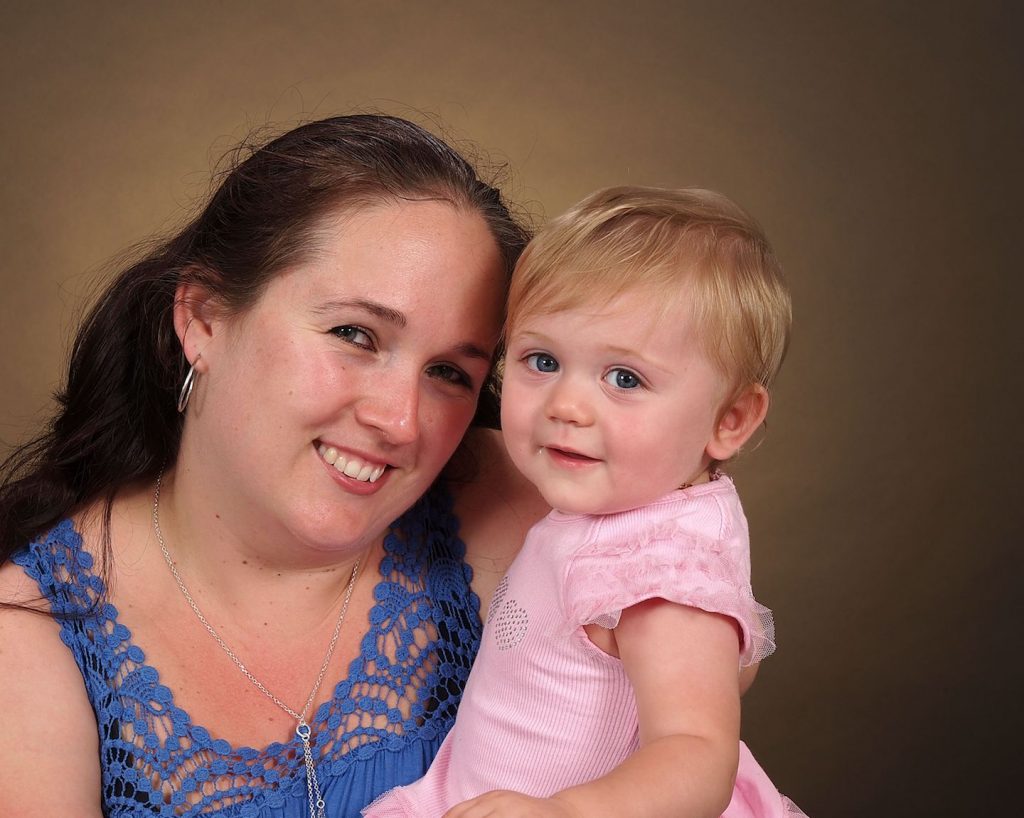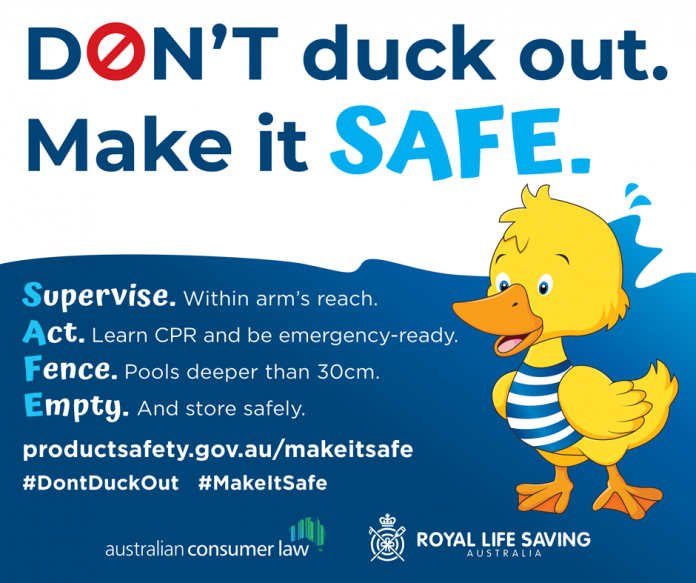A mum whose 15-month-old drowned in an unfenced backyard pool has joined Consumer Protection and Royal Life Saving Society WA to launch a start-of-summer pool safety campaign.
Royal Life Saving WA CEO, Peter Leaversuch, says the latest National Drowning Report has some tragic statistics: “Last year, there were 16 child drowning deaths and over 200 non-fatal drowning incidents recorded in swimming pools across Australia including home pools, portable and inflatable pools. Majority of these involved toddlers aged 0-4 years, who often gained access through a faulty barrier and/or gate.
“As we head into summer when drowning rates are highest, we are urging everyone to keep water safety front of mind, especially when it comes to young children. It is crucial adults keep watch constantly around water, restrict access to water bodies with barriers that have functioning self-closing and self-latching mechanisms and do not prop open pool gates. Learning resuscitation and emergency response skills is also important, as being able to respond quickly can be the difference between life and death.”
Commissioner for Consumer Protection David Hillyard said over summer and Christmas time, WA’s consumer watchdog does all it can to educate the community that a child can drown in three centimetres of water, 20 seconds and silence.
“As product safety regulators we place a particular focus on portable pools. Under the Australian Consumer Law, portable pools – from small paddling pools to big wading pools or inflatable spas – must have warning labels to alert the buyer to the drowning risks and need to investigate local fencing laws if the pool can hold 30 centimetres of water. Since 1 July 2019, we have inspected 74 portable pools at nine stores across metro Perth and regional WA and I am pleased to report 100 per cent compliance with the mandatory labelling safety standard,” he said.
“Research has shown that point-of-sale is the best place to inform consumers about safety risks, so we’re delighted for a second year running to have a commitment from three major Australian portable pool sellers to display our ‘Don’t Duck Out, Make It SAFE’ materials in store or at tills.
“We need to make sure consumers don’t duck out of the responsibilities that come with buying a portable pool, which may include putting up a safety barrier when setting up the product at home. Generally, swimming pools or spas containing 30 centimetres of water or more must be fenced.”
Andrea Wakefield, whose 15-month-old daughter Shelby drowned in an unfenced pool in Parkwood in 2013, doesn’t want any other parent to go through what her family has faced.

“On the 7 August 2013 I received a call that changed my family’s lives forever. I was told that my gorgeous Shelby had somehow got through the self-closing door at her grandparents’ house and had been found lifeless in the unfenced pool. The attending paramedics did everything they could but tragically my little girl couldn’t be revived.
“One of the hardest parts is we’ll never know what happened in the minutes before she drowned. We miss her every day, her younger siblings often ask about her and it breaks my heart they never got to know each other.
“Barriers do save lives, so I would say even if you’re in an older house where you’re not legally required to fence your pool, do it anyway. My in-laws did that before they sold the home. Also consider extra precautionary measures to prevent kids getting through pool gates. We now have a key lock on our gate and a floating alarm that will sound if someone falls in the water. I would also say take toys out of the pool area, so kids don’t have a reason to try to get through the safety barrier. These are small steps we can all take to help keep kids out of harm’s way.”
Consumer Protection advises anyone thinking about purchasing a pool to check out www.productsafety.gov.au/makeitsafe and follow Don’t Duck Out, Make It SAFE tips:
· Supervise. Actively watch children within arm’s reach. Only leave adults in charge of kids.
· Act. Learn CPR – know to start compressions and breaths as soon as possible when a child is pulled from the water and to call triple zero (000) for help.
· Fence. In WA and most of Australia, swimming pools with more than 30cm of water in them, are legally required to have a compliant safety barrier. Check with your local Council.
· Empty. For pools that don’t need to fenced, keep watch all day, then pour out water and store away from children, in a place where it can’t refill with rain or sprinkler water.



























